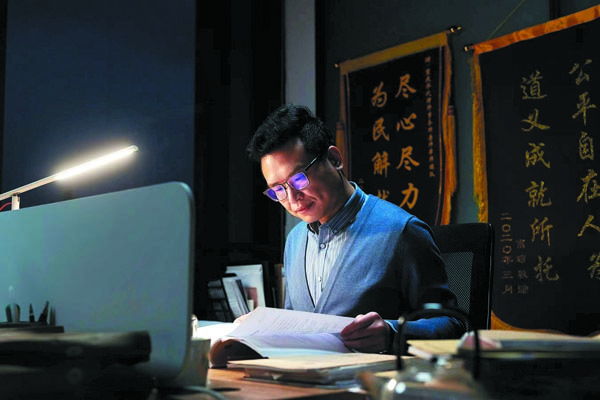Helping marginalized people get justice


According to Tang, there are more than 27 million deaf and mute people in China, and some of them resort to crime to make a living. "With their condition, they often find it difficult to get a job, but they still need to support their family. On the other hand, they have little legal understanding and may not have received much education. These factors can all lead to the committing of a crime," says Tang.
To increase their legal understanding, Tang has made short videos explaining law-related knowledge, and opened a public WeChat account to provide legal consultancy services to deaf and mute people through video calls.
Starting in 2017, he has organized a team of lawyers, comprising five deaf and mute advocates, and trained them for a whole year. According to Tang, it's a carefully selected team. "Three of them have basic listening and speaking abilities, and the other two have a good mastery of both standard sign language and various dialects," he explains.
"They have helped me a lot in publicizing law-related knowledge and providing legal services to the deaf and mute community."
One of the team members, Tan Ting, 31, passed the legal exam in 2020, becoming the first deaf lawyer in China.
In 2021, promoted by Tang, an experimental class was launched by Tang's alma mater, Southwest University of Political Science and Law, to enroll 40 fresh students every year to study both law and sign language. Tang and Tan are both teachers of the class and, in the future, deaf and mute students will be enrolled to the class as well.
One of the students, 21-year-old Ma Wenrui, says: "After entering the class, I have made clear that my mission is to enable more deaf and mute people to understand and obey the law, and be able to help them protect their legal rights.




































